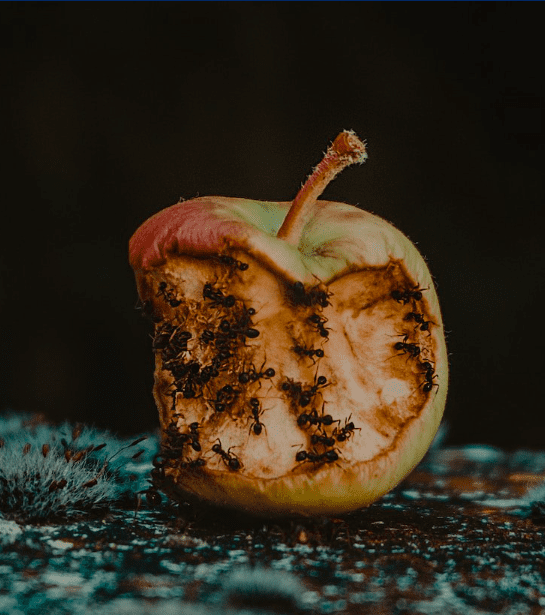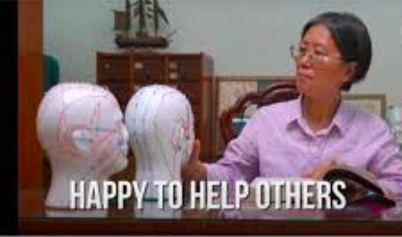Trending Stories
Deciphering the One Health Ideology: Humanity’s Balance or Potential Subjugation?

Last Updated on July 21, 2023 by Nurse Vicky
Deciphering the One Health Ideology: Humanity’s Balance or Potential Subjugation?
A Complex Interplay Between Environment and Health
The narrative of One Health—the integrative, comprehensive concept connecting environmental health to human health—has roots in ancient history. As a concept, it’s as old as the human understanding of the importance of the environment in influencing well-being.
Yet, just as the concept itself is historic, so too are the darker elements of human nature—greed, corruption, and the quest for power—that have exploited it.
These have manifested themselves in an alarmingly modern and globalized context, potentially undermining the spirit of One Health.
The present-day appropriation of the One Health approach, fueled by fear-mongering and manipulation, bears similarities to the workings of a global cult.
This emerging narrative hinges on the premise that the entire biosphere is a threat to humanity, carrying the potential for fear-induced control over populations.
With the adoption of the One Health terminology and financial backing from the repercussions of the Covid crisis, this narrative has gained significant momentum.
One Health: A Lifeline for Humanity and Biodiversity
One Health, in essence, is a rational, pragmatic principle, particularly in a world fixated on allopathic medicine and vaccine solutions.
The concept emphasizes the role of sanitation and nutrition in improving overall health components that often eclipse potential gains from big pharma interventions.
However, as we’ve seen in various other sectors, the One Health approach has been co-opted by individuals and entities with self-serving agendas.
These so-called philanthropists have commandeered the principles of One Health to instill fear, effectively employing it as a tool for mass manipulation.
One Health: An Ideological Shift and Its Implications
An examination of the Lancet’s January 2023 elucidation of the One Health concept provides insight into the guiding ideology of those steering this narrative: “All life is equal and of equal concern.”
This stance suggests a fundamentally altered perspective toward the natural world, emphasizing ecological equity over health equity.
The implication here is that within this equitable worldview, humans are considered an environmental burden. The continued growth of the human population has undoubtedly contributed to widespread environmental changes and biodiversity loss.
Thus, under the guise of the greater good, actions leading to the restriction and impoverishment of humans could potentially be justified.
One Health: Instrument of Fear and Control
The hijacked version of One Health portrays humans as being under constant threat from their environment, necessitating protection and control for their own welfare.
To persuade the masses, individuals are subjected to constant reminders of existential risks—climate change, vehicle exhausts, viral variants, and the behaviors of others.
The Covid-19 pandemic witnessed the successful employment of fear as a behavior modification tool, leading to widespread compliance with guidelines such as mask-wearing and stay-at-home orders.
This fear-driven control model could be expanded and applied to any biosphere aspect impacting human well-being, allowing an almost totalitarian population control tool.
A Hopeful Take: WHO’s Redirection Towards Human Well-being
Despite the potential for abuse, the One Health approach, when combined with WHO’s broad health definition and a holistic understanding of environmental interplay, can offer a defendable method to foster genuine human well-being.
This approach should prioritize building and preserving social capital—supportive social networks that value individual participation in decision-making.
One Health: An Urgent Call to Reclaim its Authentic Spirit
The evolution of One Health presents a stark warning of how a well-intentioned concept can be exploited for nefarious purposes. Despite this grim reality, it is crucial to remember that the practice of holistic medicine and the principle of One Health are valuable tools for humanity.
Our task now is to reclaim and preserve these tools from those who seek to subvert them for their personal gain and ideological motivations.
Understanding One Health as a Strategy for Human Well-being
One Health – a seemingly altruistic notion that marries environmental wellness with human health. A notion that has traveled the sands of time, remaining pivotal throughout the epochs.
Now, a renewed emphasis on this centuries-old ethos calls for a critical review. Consider the pastoralist, whose cattle are plagued by tuberculosis.
The implications are not limited to the herd but trickle down to affect the family, community, and their future.
In this equation, the resolution for the livestock is concurrently a resolution for the humans connected to them. One Health, in its most authentic form, follows this linear logic.
This methodology was adopted as a pragmatic response in a world mesmerized by the lure of allopathic medicine and the promise of magical vaccines.
It was a call to shift our focus back to the basics – sanitation, nutrition, and a balanced environment, all-encompassing an integral aspect of human welfare.
These basic elements of health, often overshadowed by the glitz of pharmaceutical advancements, have the potential to outdo the mortality reduction capabilities of even the most lucrative medical innovations.
However, just as the innocence of flight was exploited for political and financial agendas, One Health has not been immune to the clutches of those with ulterior motives.
The pertinence here is not to abandon planes or holistic medicine, but rather to scrutinize the hijackers and their intentions.
One Health as an Ideology
The esteemed medical journal, The Lancet, shed light on a disturbing interpretation of One Health in early 2023. The narrative proclaimed, “All life is equal and of equal concern”.
A statement that sounds beautiful on the surface, but one that begs further inspection. As humans, we hold a unique position in the ecosystem.
Are we prepared to equate the value of our loved ones with that of a rat, as per this equitable worldview?
It implies a shocking devaluation of human life and, in the broader picture, portrays humans as pollutants, undermining our contributions and magnifying our environmental footprint.
One Health as an Instrument of Fear
At its worst, One Health is becoming a strategic fearmongering tool. In the current context, where climate change, pollution, virus variants, and disobedience have been painted as existential threats, One Health is used to justify population control.
Fear, historically, has been a potent manipulator of human behavior, compelling compliance, even when it’s against individual or communal interests.
To fully comprehend this strategy, it’s essential to look at the fear manipulation during the Covid-19 crisis, where fear was used to ensure adherence to mask-wearing and stay-at-home orders.
The Shift in WHO’s Stance
The World Health Organization (WHO) could have harmoniously merged its broad definition of health with One Health’s holistic environmental interdependence to promote human welfare.
In 2019, WHO discouraged border closures, quarantine, and extended business closures, predicting they would exacerbate inequality and harm low-income individuals, economies, and social capital.
However, by 2020, WHO’s position had swiveled, with the organization promoting the very policies it had earlier condemned. The beneficiary shift from the impoverished to the affluent marked the transformation of WHO’s ideology, as the latter became its major funders.
Exposing the Cult
The fight against such manipulation isn’t by turning a blind eye but by laying bare the ideology that fuels it – greed, deception, and dishonesty.
It’s essential to remember that this strategy, while widespread, is directed by individuals who are flawed and fallible.
The corrupt version of One Health and the vested interests of its proponents will eventually crumble under the weight of their own deceit and the superficiality of their dogmas.
The Bottom Line
Public health and a holistic worldview aren’t enemies; they are our allies in the pursuit of a healthier, safer world. We must challenge the misinterpretations, driven by those with their own self-interests while acknowledging the value of our own agency in health-related decision-making.
Sources:
Trending Stories
Sister Regina Liu: Empowering Health Through Acupuncture

Sister Regina Liu: Empowering Health Through Acupuncture
In the bustling world of healthcare, Sister Regina Liu stands out as a beacon of holistic healing. Her journey into the world of acupuncture is not only inspiring but also transformative for the countless individuals she has treated.
Through her dedication, Sister Regina has brought traditional Chinese medicine to the forefront, offering an alternative and complementary approach to modern medical practices.
The Journey of Sister Regina Liu
Sister Regina Liu’s path to becoming a renowned acupuncturist began with her deep-rooted interest in holistic health. Born into a family that valued traditional Chinese medicine, Sister Regina was exposed to the benefits of acupuncture from a young age. Her early fascination turned into a lifelong passion as she pursued formal education and training in the field.
Acupuncture: Bridging Ancient Wisdom and Modern Health
Acupuncture, a practice with origins in ancient China, involves inserting thin needles into specific points on the body to balance the flow of energy or “qi.” Sister Regina Liu has mastered this ancient art, using it to address a wide range of health issues.
From chronic pain to stress management, her expertise has provided relief to many who had exhausted conventional treatment options.
Impact on Community Health
Sister Regina’s impact extends beyond individual treatments. She has been instrumental in educating the community about the benefits of acupuncture, breaking down misconceptions, and making the practice more accessible.
Her workshops and seminars have enlightened many about the holistic approach to health, emphasizing the interconnectedness of body, mind, and spirit.
Success Stories and Testimonials
The success stories of Sister Regina’s patients are a testament to her skill and dedication. Many individuals who had lost hope found solace in her treatments.
For instance, Maria, a long-time sufferer of migraines, experienced significant relief after just a few sessions with Sister Regina. Her story is just one of many that highlight the transformative power of acupuncture under Sister Regina’s care.
Challenges and Triumphs
Like any journey, Sister Regina’s path was not without challenges. Integrating acupuncture into mainstream healthcare faced resistance initially.
However, her perseverance and the undeniable results of her treatments gradually won over skeptics. Today, Sister Regina is not only respected in the field of acupuncture but also in the broader medical community.
The Science Behind Acupuncture
While acupuncture is rooted in ancient practices, modern science has begun to unravel the mechanisms behind its effectiveness. Studies have shown that acupuncture can stimulate the release of endorphins, the body’s natural painkillers, and improve blood circulation.
These scientific validations have further cemented acupuncture’s place in contemporary healthcare, thanks in part to advocates like Sister Regina Liu.
Acupuncture in Modern Healthcare
Sister Regina’s work exemplifies how traditional practices can complement modern medicine. Hospitals and clinics increasingly incorporate acupuncture into their treatment plans, recognizing its benefits in pain management, mental health, and overall well-being. This integration signifies a broader acceptance and understanding of holistic health practices.
Future Vision
Looking ahead, Sister Regina Liu envisions a future where acupuncture and traditional Chinese medicine are fully integrated into the global healthcare system. She continues to advocate for research, education, and policy changes that support the inclusion of holistic practices in mainstream medicine.
How to Get Started with Acupuncture
For those new to acupuncture, Sister Regina offers practical advice on getting started. She recommends finding a certified acupuncturist, understanding the treatment process, and maintaining an open mind. Her guidance helps demystify acupuncture, making it more approachable for newcomers.
Conclusion
Sister Regina Liu’s journey in empowering health through acupuncture is a remarkable tale of dedication, resilience, and success. Her contributions have not only alleviated individual suffering but also enriched the broader understanding of holistic health. As acupuncture continues to gain recognition, Sister Regina’s legacy will undoubtedly inspire future generations of healers.
FAQs
1. What conditions can acupuncture treat?
Acupuncture can address various conditions, including chronic pain, migraines, stress, anxiety, digestive issues, and more. It is also used to support overall wellness and balance.
2. Is acupuncture safe?
Yes, when performed by a certified and experienced acupuncturist, acupuncture is safe. It involves using sterile, single-use needles and adhering to proper hygiene practices.
3. How many sessions are needed to see results?
The number of sessions varies depending on the condition and individual response. Some may experience relief after one session, while others may need multiple treatments.
4. Does acupuncture hurt?
Acupuncture needles are very thin, and most people feel minimal to no discomfort. Some may feel a slight tingling or warmth at the needle site.
5. How do I find a qualified acupuncturist?
Look for acupuncturists who are certified by recognized professional organizations and have positive patient reviews. Personal recommendations and consultations can also help in making an informed choice.
References
Trending Stories
In 2 Shape Gym Unveils Major Expansion in Stourport
Trending Stories
9 Reasons Why In-Person Friendships Are Irreplaceable
-

 Trending Stories1 year ago
Trending Stories1 year agoCDC: 1 in 4 Americans Still COVID-Free by End of 2022
-

 Health5 years ago
Health5 years agoMeghan Trainor Shares Motivational New Song ‘Blink’
-

 Health2 years ago
Health2 years agoHow Long Does Monkey Pox Last Before It Surfaces in the Body?
-

 Health2 years ago
Health2 years agoWhat Causes Swollen Body? Understanding Edema and its Triggers
-

 Health3 years ago
Health3 years agoNutrition and the Importance of a Fitness Program – 3 Things to Know
-

 Health3 years ago
Health3 years ago5 Weird Reasons Why Pimples Disappear After Marriage
-

 Health3 months ago
Health3 months agoHow Do Pawpaw Seeds Support Cardiovascular Health?
-

 Health2 years ago
Health2 years agoHealth Benefits Of Pawpaw Seed? 7 Things To Know







